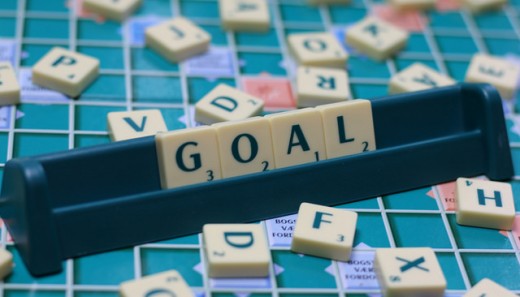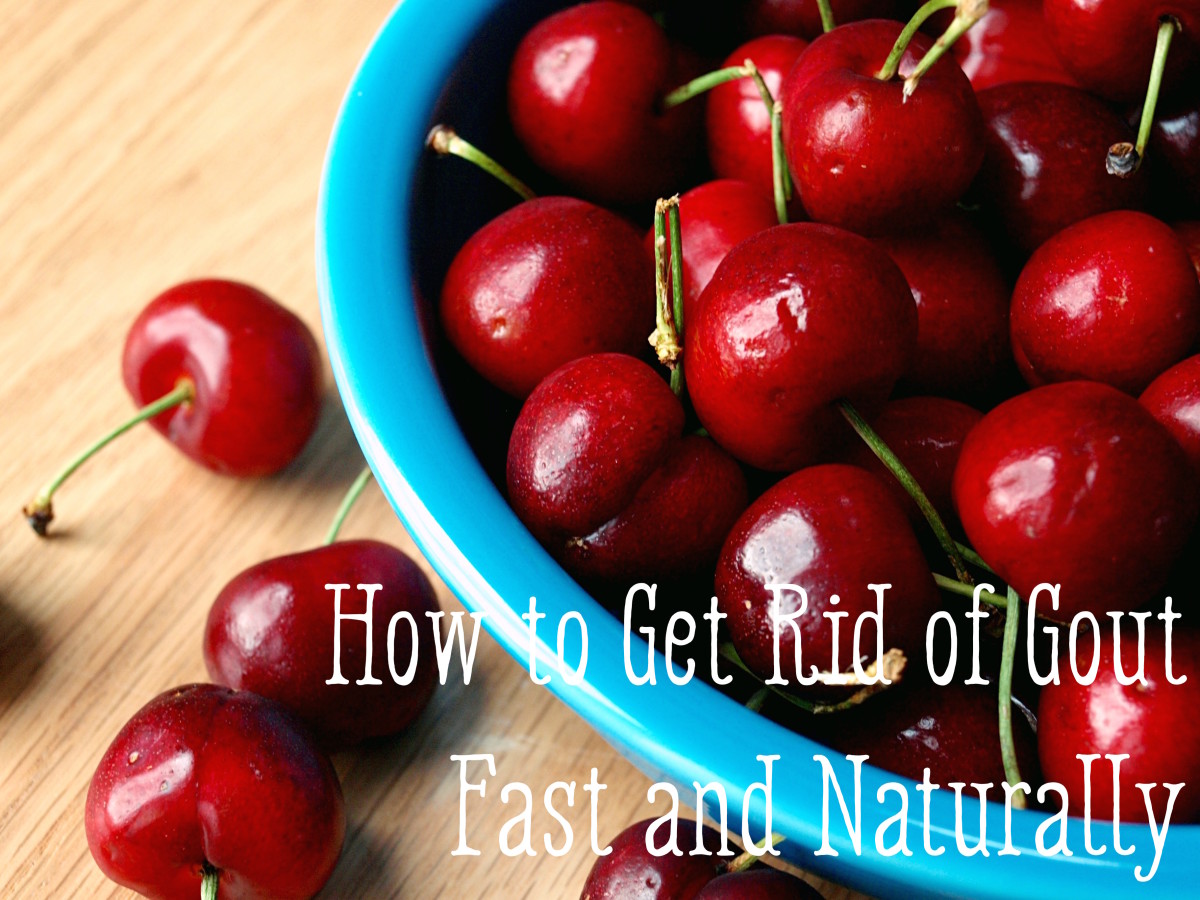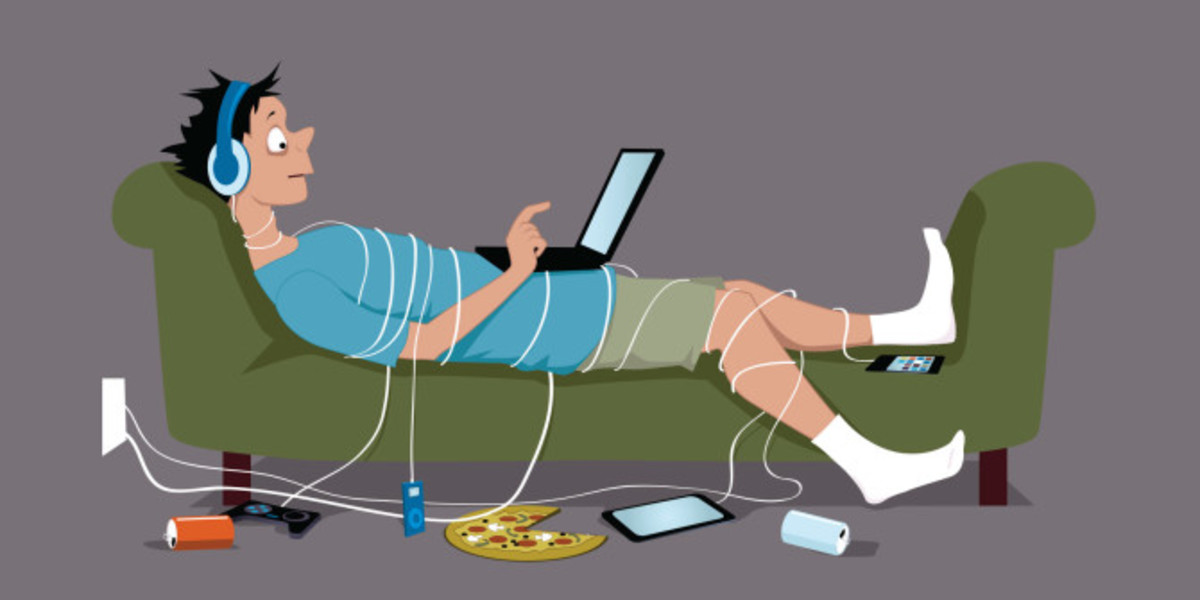- HubPages»
- Health»
- Quality of Life & Wellness»
- Personal Development
How to Make Lifestyle Changes

When deciding to make a lifestyle change related to your health or wellness, it is important to be sure you are aware of the medical facts, have information from knowledgeable sources to guide you in making changes that are beneficial, and develop some type of mental plan about how to implement those changes.
Before starting, however, there is another component of making a lasting lifestyle change which is equally important to examine. In my opinion, being able to succeed requires an individual to make sure they enter into the process with the right attitude or mindset. For some, this outlook seems to be automatic, for others, it is something they need to consciously adopt. Failure to carry the right mental attitudes into the process can hold an individual back despite their best efforts.
No lifestyle change is simple or easy. Certainly, I won't be able to cover all of the factors that can contribute to successfully making such changes and I don't want to oversimplify things, but I'll discuss a few key mental stumbling blocks that seem to exist.
I will discuss some of these below, trying to illustrate with examples of small changes I have made over the years.

You Are In Control
I had been working for 6 months to adjust my diet, increase my activity, and so forth to reduce my cholesterol levels as I aged. When I went to have my lipid levels rechecked, I discovered that I had been successful. All of my levels, HDL, Triglycerides, LDL, and Total Cholesterol were all right where they should be. It was a wonderful feeling. I remember experiencing the sensation that I was in control. I was the master of my body. I had the power to change things.
Now granted, there are things that we absolutely can not control, but often we can. Most physicians that I've talked to throughout my healthcare career agree that we have much more control over our health and aging than what we realize or are willing to accept responsibility for controlling.
I can't imagine making a change in my health or any other part of my life if I don't first accept that I can control it. Entering into the process saying, "I can't do this" or "this won't work" assures failure. Many people have failed at diets and therefore assume they can't lose weight, lower their blood pressure, manage their blood sugar levels, lower their cholesterol, and so forth. Many people feel like they are depriving themselves already and therefore, can do no more.
This is an attitude that is counterproductive to any lifestyle change. The first step in my eyes then is to accept the responsibility, to accept that you can change something, and you have the power to do so.
Sometimes it is effective to simply stop any negative self-talk. When an individual finds themselves thinking "I can't", they need to think even harder "Stop", "don't think that", and instead think "I can do this". No one would accept a friend who kept telling them to stop trying, that their effort was futile, so don't accept that from yourself.
You Really Can't Have It All
We all know this one, but it takes a bit of introspection to realize how hard we fight it.
I love pasta, rice, potatoes, cheese, and white bread. I do. It was inconceivable to me that I would seriously restrict eating these things. But, I knew I had a choice to make. Was it more important to me to eat these items or that I continue to live an active, healthy life without having a stroke or heart attack before I reached 60? For me the answer was simple.
I've heard it said that people will do almost nothing that doesn't come naturally to prevent something bad from happening, but once something bad happens they would give anything to change it. Sometimes we need to accept reality sooner, sometime well before the bad thing happens. So I forced myself to seriously consider my life after the bad thing happened.
I've had friends in the past who complain about being unable to lose weight, manage their blood sugar, or cut their cholesterol but talk about how they really don't want to have to cut back on certain foods or take up strenuous exercise. They don't like it. In their words, life isn't worth it if they have to skip eating things they love or do things they dread.
I'll talk about preferences and the need to enjoy things in a bit, but for now, I think another key attitude for successfully making a lifestyle change is that you recognize the change as a priority and accept that some things will have to be given up. For instance, if you want to lose weight or reduce your cholesterol, you need to exercise more and eat less or eat differently. No way around it. Find a way to do it that works for you. If you refuse to do one of these two things, it won't happen. Period. If you insist on eating the same way and living the same way, you are prioritizing something else and you won't be successful in making the change or achieving the goal you want.
If a particular lifestyle change is your priority, then you will have to accept that other, more minor things may have to be sacrificed. As the title says, you really can't have it all. You can't eat ice cream, hamburgers, and french fries every day and achieve a goal to lose weight or lower your cholesterol. So you have to decide which is your priority.
These changes may have to be phased in over time so that you aren't overwhelmed. But these habits or lifestyles may well be the crux of the problem, so change they must. Any change often involves either giving some things up or being uncomfortable for a while until you adapt to the new normal.

Planning to Enjoy the Change
For many changes, and weight loss is the perfect example, we assume all of the work will be painful and involve deprivation or a loss of all of the things we love. Although recognizing that you will have to change and give some things up is important, I'm not sure change is only about giving things up. Remember, the word is change, not loss.
I think the best attitude is that you can, and will, identify options that work for you. You can enjoy this change.
I love high-fat foods, rich, creamy sauces, pungent cheeses, and so forth. To cut my cholesterol I had to change. Now instead of indulging daily, I do so once a week. Just as important, I increased some of my lower fat food options into my meals much more frequently. If I were writing down a list of my favorite foods and dishes, some of these lower fat options would have been on the list all along. Now I just eat them more frequently and have worked to discover new ones. I still eat what I like, I just adjusted the balance and added some new things I've discovered.
If I get stuck on the idea of all those rich, creamy sauces I'm giving up, then I'll lose motivation. If I focus more on enjoying them infrequently and enjoying other healthier food options, then I stand a better chance at succeeding.
I also avoid eating things that may be low fat but also happen to be things I detest. Why torture myself? I detest skim milk, so I don't drink it. If I hate what I'm doing, there's no way I'll be able to continue doing it long term, so why set myself up for failure? We need to enjoy things, it's just that they may be different things than what we're enjoying right now.
I think the same goes for people who hate exercise. Personally, if I had to go to a gym every day I would fail. But since I enjoy walking, that's something I can do every day. If your attitude is that you will find alternatives that you find enjoyable or at least acceptable, then you will find long-term success. Enjoyable things are easier to prioritize. Getting my walk in on a given day is not less important than styling my hair, vacuuming, or whatever else I may have to do.
Accept Forever
Dieting takes a certain attitude. Most dieters buckle down, follow some rules, lose weight, celebrate, and move on, only to find they regain the weight later. The same thing can happen with lowering your cholesterol or your blood pressure. You change, you get your levels where you want them, you celebrate, and 6 months later they are right back where they started.
To really make a lifestyle change, you should probably start off with the attitude that this is forever. It is not like cramming for a test. It is not like achieving most goals in life where you work like a dog, reach a goal, and then move on. It's actually more akin to managing your money. You can't focus on reducing your debt and then once you do so, turn around and spend lavishly every month expecting that the problem has been solved. Instead, you have to continue with many of the spending habits you developed during the process of reducing your debt. If you don't do that, you will continue to be frustrated with your repeated failure.
You shouldn't despair though, once you've developed these new habits, they will be easier to stick with, and hopefully, you'll even enjoy most of them. Smaller changes, ones you can truly live with may produce slower results but are the ones you can sustain without excessive sacrifice.
Imperfection is Acceptable
When I set out to cut my cholesterol, I had an attitude that said, take it one step at a time. Every food choice I made mattered but if I ate something high in saturated fat, I didn't feel like I had failed. I just knew my next few choices needed to be good. I didn't fall off the wagon so to speak just because my husband enticed me into eating a doughnut one morning. At the next meal, I could make a fresh start and a better choice.
I know that success happens in the long term. I know that success is cumulative. I know that success doesn't mean all or nothing in many cases. Accepting something less than perfect generally works. It's the big picture that counts and beating yourself up over small failures takes away from the hundreds of successes you experience along the road.
The only danger you have to fight is that exceptions can become the rule. That once a week treat slowly becomes a once a day treat. Be aware to guard against this but don't be a perfectionist. Remember you have to be a friend to yourself versus berating every misstep, we are human.

Recognize the Power of Influence
You need to recognize that, for better or for worse, others can influence your progress toward your lifestyle change.
Do you know the biggest barrier I faced when I tried to lower my saturated fat intake? It wasn't the luscious foods and delectable "goodies". It wasn't my stomach or a weak will. No. It was the people who loved me. My mother who offered me bad food options every time I saw her. A husband who constantly asked me if I wasn't "going overboard", and so forth.
In some cases, you may need to kick some friends out of your social circle or hold them at arm's length. However, hopefully, that isn't often a necessary step for you to get where you want to go. For me, I had to be consistent in how I refused but I also had to set up some boundaries.
I actually had to have a "sit down" with my mother. The analogy that finally got through to her was that of being an alcoholic. I told her, "If I were an alcoholic, would you be pushing a beer at me and telling me that having a 6 pack would be ok?"
The end point is that you likely didn't get here on your own and you probably need a little help from others to get out of the situation too. How others around us eat and live influences our choices. If family and friends are sedentary, if they focus socialization on food, if they don't eat healthily, and so forth, we often share those traits.
For this reason, when making a lifestyle change you may need to get those around you on board with it. They need to understand it's importance and how they can help, or at least not deter you from meeting your goal. Otherwise, your battle will be sabotaged frequently and your chance of success will be drastically cut.
Certainly, on the flip side, if you have a partner in your effort you should find your burden to be significantly lighter. A spouse or a good friend who shares your commitment to eating lighter, to incorporate exercise into your daily routine, or some other shared goal is an optimal situation.
In the absence of such a partnership, participating in other groups that support your efforts could be useful as well. Weight loss support groups are just one example but online groups and forums which focus on the appropriate topics might even prove beneficial as well.
Any significant lifestyle change requires a conscious commitment and sustained effort but often once the pattern is set, the new lifestyle can be as effortless as your previous pattern. My experience indicates that some of the attitudes described above may be crucial to incorporate as you set out to make those changes.
© 2018 Christine Mulberry








